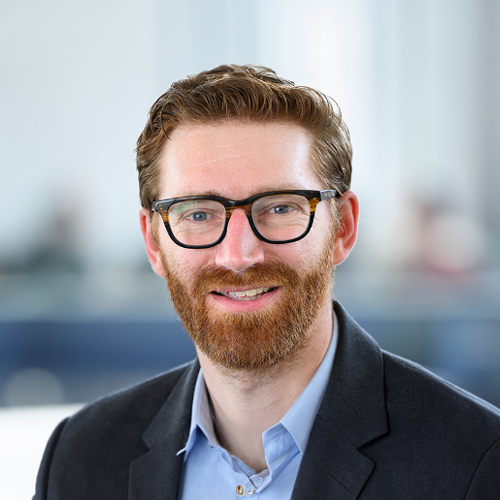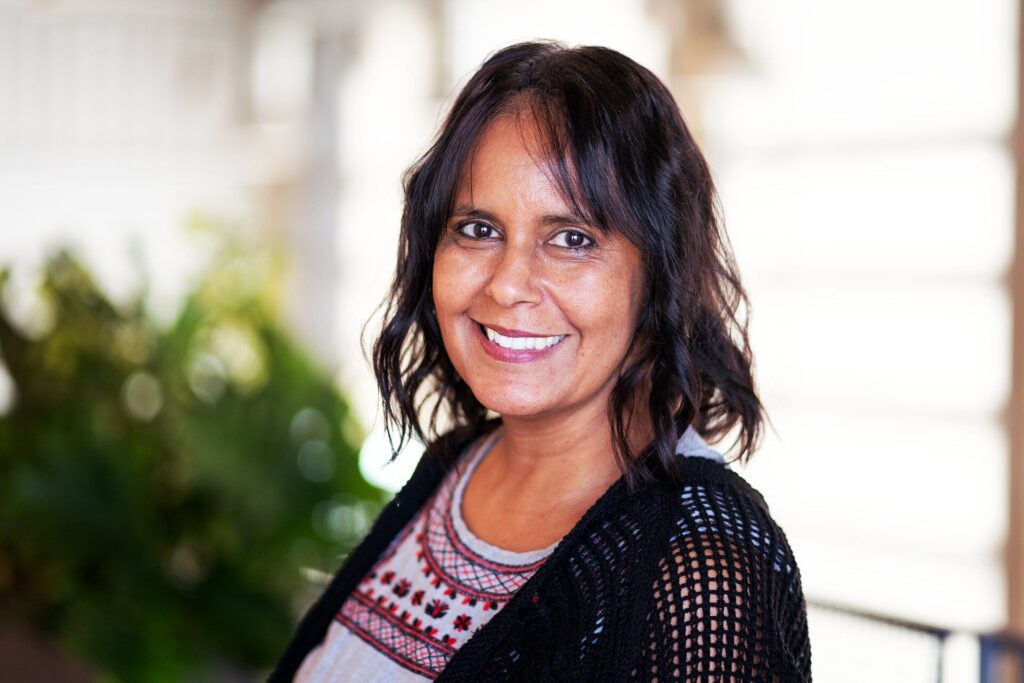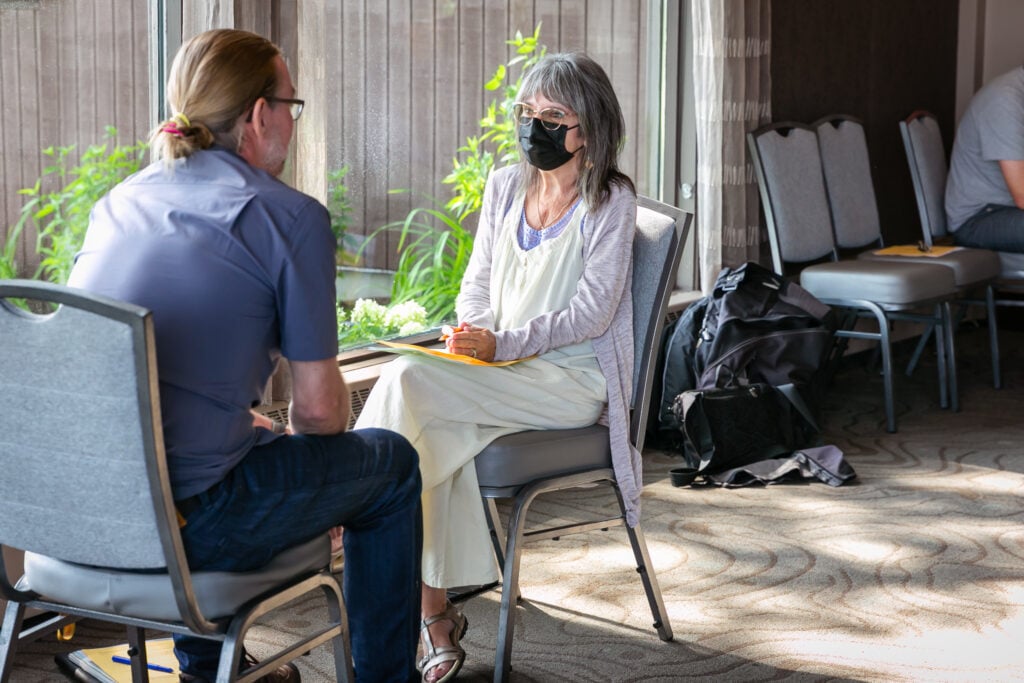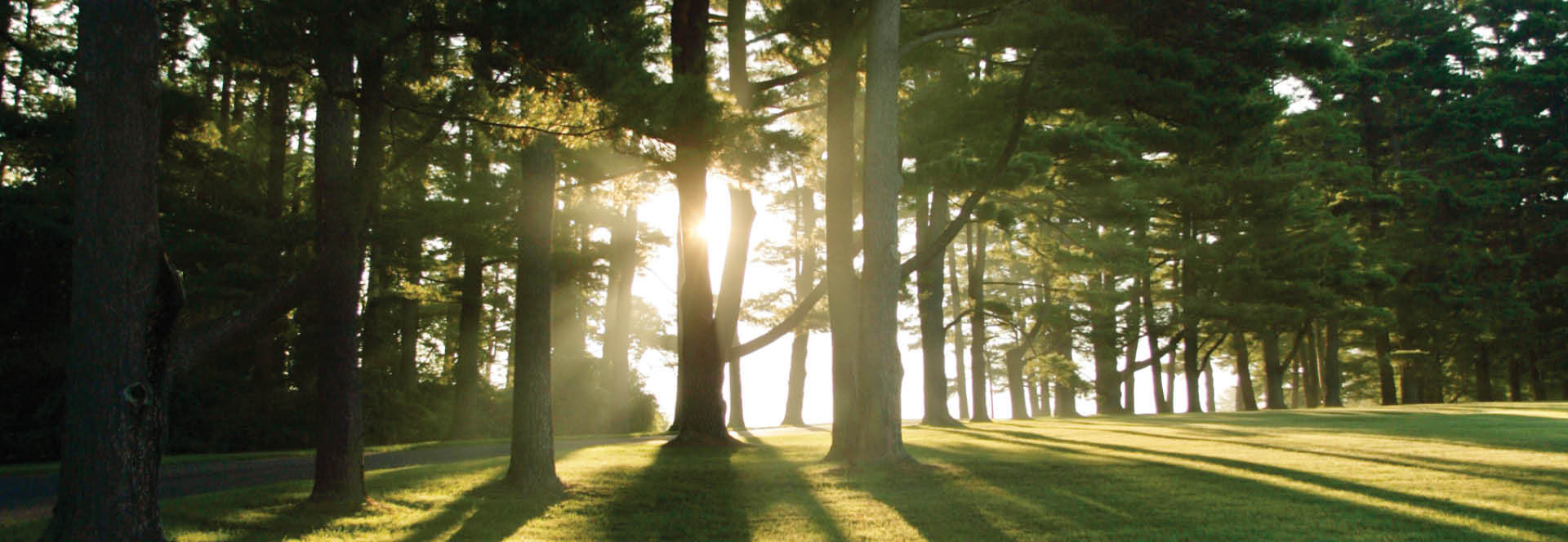King’s University: What Happens When Faculty Members Listen to One Another’s Stories?
Written by Daniel Meyers, NetVUE Online Network Coordinator

What happens when faculty members are given the opportunity to listen to each other? Not to resolve a conflict or to accomplish a specific goal, but to reconnect to their own vocational journeys. This was the question Witty Sandle, manager and counselor at the Center for Career and Calling , wanted to explore at The King’s University in Edmonton, Alberta. While a deep listening program might strenthen the relationships of those involved, the hope was that a day focusing on holding spaces of attentive listening, and the art of asking reflective questions, would have the potential for significant impacts on the students.

Having recently joined NetVUE, King’s began to develop a proposal for a Professional Development Award . As they imagined different possibilities, their planning was often shaped by the most banal of all influences: the schedule. There was no obvious time when everyone would be free. There was one event at the beginning of the academic year that all faculty members typically attended, Resourcing Day. This event was originally envisioned as an opportunity to reflect on the mission of being a Christian institution but it had slowly morphed into a meeting to discuss various important, yet more technical, concerns of the university. Having strayed from its purpose of mission renewal, Sandle and her colleagues saw it as ripe for reinvention. They secured the grant, reimagined Resourcing Day, and unapologetically set the themes as “attention, curiosity, and reflection.”
Why unapologetically? Sandle explains that “the heart of the grant was about attentive listening,” with the intent of pulling faculty out of their daily experience of their routine spaces, as well as their daily academic practices. Witty continues, “we were not trying to do the academic mental work faculty tend to do. We tried to operate very differently, not discussing, not analyzing, but purely listening to one another.” What unfolded was a series of small groups in which faculty encountered a shared text, modeled vulnerability, and shared their vocational journeys through their stories, questions, and reflections, all within a well-facilitated framework. “It was intense,” says Leah Martin-Visscher, associate professor of chemistry and recent graduate NetVUE faculty development seminar . Reflecting on her experience two years ago, she describes the day as “so much more personal than other events had been, yet so natural.” Resourcing Day had always invited faculty to tell their stories with one another through organic conversation, but this event demonstrated that “we can use what we love to do together, telling stories, in different ways to increase vulnerability, but still with control over it, and allow for risk,” says Martin-Visscher.

Over the subsequent year, small groups of faculty mentors used this practice in their work with first-year students and supported their intentional storytelling through attentive listening. Elizabeth Willson-Gordon, associate professor of English and current principle lead on a new NetVUE grant , participated in these smaller cohorts. Not only did she notice that she drew closer to colleagues—learning about their lives in ways she never knew even after several years of friendship—but she also came to appreciate her work more. When asked of the benefits, Willson-Gordon laughs and says, “I realized I’m so fortunate to have the job that I have and the colleagues I have.” It might not be surprising that a program anchored in attentive listening would deepen relationships and appreciation for one’s work; yet Willson-Gordon also discovered that the practice impacted how she connected with students. “I was thinking about how I came to be the scholar and the teacher I am now, and how I can share that with students,” she says, noting that her experience will have an impact on her teaching.
The reimagined Resourcing Day, and the ongoing faculty listening circles, benefited faculty by inviting them to leave their analytical headspace and to remember their own questions and uncertainties about their own vocations. This experience thus reminded faculty “of the journeys our students are on,” observes Sandle. “Our students come with fear and trepidation, and this was a reminder that students are not that different from us. We are all asking these big questions, and the Resourcing Day reminds us that we are all in this together—this shared vocational journey.” If we want students to be vulnerable with us as they reflect on their uncertain vocations, we need to model our own uncertainties by sharing our own stories with them. Programs like King’s Resourcing Day provide a model for us all for giving faculty an opportunity to learn and practice.
What happens, then, when faculty are given the opportunity to listen to each other? Those at The King’s University illustrate the power of reimagining an annual gathering at the start of the academic year that had strayed from its original intent and returning it to its former vocational self. By developing their own listening practices, faculty embodied vulnerability in their own relationships, which in turn allowed them to model it with their students in their vocational reflections. The value of this transformation is hard to overstate; it’s also hard to measure. But Sandle is confident in the power of small change. She notes, “it’s important to talk about little shifts and little turns. In five or ten years we will be much further along in vocational reflection because of those little shifts.” Indeed, the evidence of these turns surfaces as Sandle, Martin-Visscher, and Willson-Gordon notice their colleagues raising the value of vocational reflection in meetings across campus. “If we are doing our job well,” says Willson-Gordon, “the community as a whole embraces vocational reflection, and then it belongs to everybody.”
To see the impact of the initial Resourcing Day at The King’s University, watch the short video below capturing faculty reflections. After the first year focused on attentive listening, the following Resourcing Day in 2023 focused on individual stories, and this year’s gathering will focus on exploring the institution’s collective story.

To report a technical problem with the website, or to offer suggestions for navigation and content issues, please contact Alex Stephenson, NetVUE communications coordinator, at astephenson@cic.edu.


